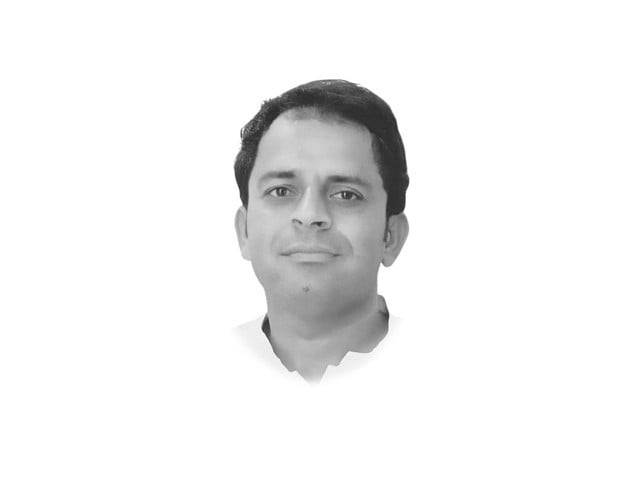Pakistan's paradox
.

Pragmatic policies and their practical pursuits are pivotal in putting a society on the path to progress. This requires achieving policy goals with integrity and transparency. In other words, when the design and execution of policies align with the principles they claim to embody - and are carried out in their true spirit - the desired outcomes can be realised effectively. However, this is only possible in settings where decision-makers and statesmen enjoy unquestionable legitimacy. It is this legitimacy, combined with public trust, which grants leadership the moral authority and integrity to enact policies meaningfully for the public good.
Conversely, policies, however pragmatic, advocated by stakeholders with questionable authority and legitimacy often produce paradoxical outcomes. These carefully cultivated ironic outcomes not only perpetuate systemic illegitimacy by masking flaws for the governed but also shield the system from potential accountability. In such cases, outcomes favoured by proponents stem not from pragmatic policy but from deceit and hypocrisy embedded in their implementation. This is the approach that successive hybrid and military regimes have sustained - both in public and socio-political spheres - for nearly three quarters of a century in Pakistan. At the same time, they have kept public hopes alive by repeatedly reiterating false promises.
Pakistan's false hopes and battles against social ills are a never-ending and paradoxical fight that ultimately benefits the forces of status quo more than the aggrieved public. For instance, measures aimed at alleviating poverty add to the poverty since poverty of the masses serves an illegitimate and deceitful status quo more than public prosperity. Assistance provided under various names - in cash and in kind - serves the cause of poverty and the empowered more than it helps the poor. Also, these measures contribute to a culture of begging among those who might otherwise be self-reliant but are now destitute. Similarly, injustice is perpetuated in the name of justice, security, democracy, civil rights and other ideals.
Haven't you ever encountered, experienced or witnessed - or been - one of the saviours, justice, democrat, empathetic, healers, soothsayers or champions of a just cause? Someone who showed up, empathised with the aggrieved, victims or the disadvantaged, and promised to fight for their justice, cause or grievances? Haven't you ever heard of NGOs, social activists, journalists, social workers, feminists, clergy, notoriously influential, liberals, rightists or humanists who rose to prominence by voicing the agonies of the disadvantaged, only to end up rich, popular and prominent at the cost of those they claimed to represent? Doesn't it suggest the voices, funds, aid and debts taken in the name of public cause ultimately end up in the palaces, properties and islands abroad and the country across history only to be paid back by the public with their sweat and labour?
The paradox exists for a reason: today, as throughout history, the deep state controls (read derails) the socio-economic, political and constitutional engine of the country. The same is true for the judiciary's role in distorting justice; the media in suppressing truth; the clergy in exploiting religion; civil societies in undermining social causes; feudal and tribal warlords in enslaving the peasantry and landless people with false promises of worldly salvation; and parasitic pirs who trap people in a destitute pursuit of divine atonement? Meanwhile, political dynasties lead the battle against breathing democratic values and potential public prosperity in exchange for a share of power and evasion of accountability.
However, the quad of entities - deep state, political dynasties, judiciary and bureaucracy - and their ilk have thankfully overused paradoxes and exposed their facades to such an extent that their sustainability now appears untenable in the long run. Now that most of the facade of false hopes has been unveiled, so too have the roles of the architects, characters and beneficiaries of these paradoxes.
The notorious PECA Act and the 26th constitutional amendment appear to be the last gasps of the decaying parasitic status quo.














COMMENTS
Comments are moderated and generally will be posted if they are on-topic and not abusive.
For more information, please see our Comments FAQ